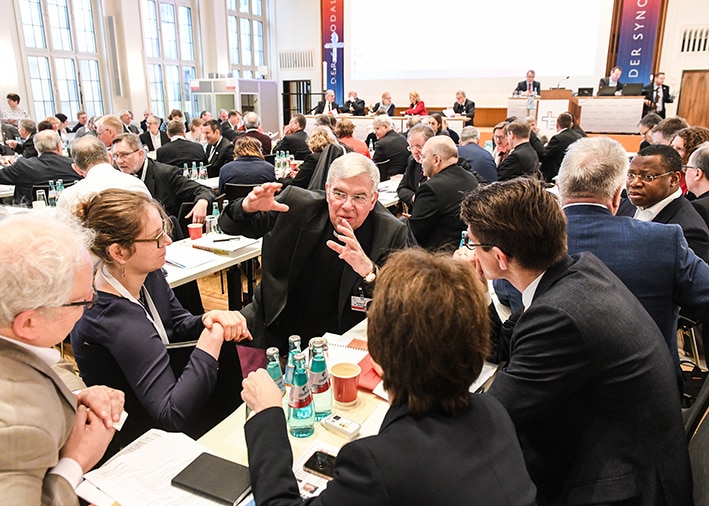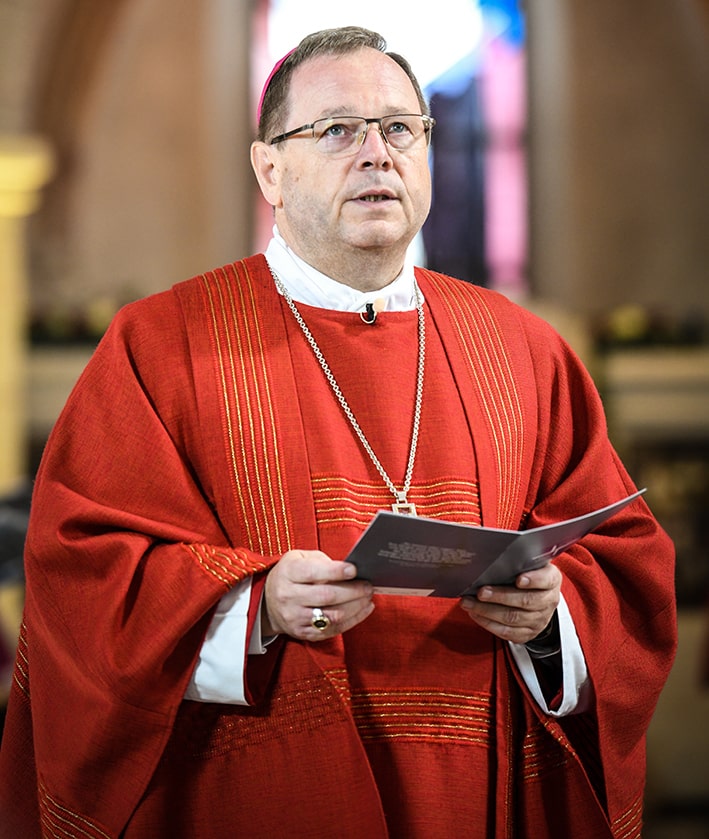
Just when you think this year couldn’t get any stranger, the German Church takes us to a whole new level of you-can’t-make-this-up.
Just this week, Rome had to stop the Diocese of Trier from ‘rationalising’ all 887 parishes into just 35 ‘mega-parishes’, led by lay people and the odd priest.
(We have all met the Odd Priest; he’s the one who sits sheepishly in a corner of the sanctuary during Mass while lay women do everything else around him.)
Under this plan, lay people would apparently be preaching homilies and carrying out other functions that would render the priests as sacramental dispensers and nothing more. Creating centralised parishes would also mean that practising Catholics might have to travel up to 50 kilometres to get to Mass.
Just a week or so before that, the German bishops’ synod suggested that their synodal process had much to offer the universal Church.

Bishop Georg Batzing of Limberg, president of the German bishops’ conference, said that he was “very much in favour of transporting to Rome, to the level of the whole Church, the insights and decisions that we garner from the Synodal Process”.
German engineering used to be pretty famous; let’s see how German Catholic engineering is going.
Catholics in Germany have to register and then pay a Church tax of around 8 per cent of their income. But only around 10 per cent of German Catholics practise regularly, so the German Church is in a pretty cushy situation. It has lots of signed-up, fee-paying members generating a massive income stream, but very few pesky laity in the pews.
However, people do get sick of it. Last year, the Archdiocese of Munich alone lost over 10,000 registered Catholics – record numbers for that diocese. When people de-register, the Church loses income. So when you officially renounce your Church membership, you don’t have to pay the tax any more – but you are also then denied the sacraments.
In the olden days, the system of no pay, no sacraments used to be called ‘simony’. Apparently in Germany today, it’s called ‘good financial management’.
The system of no pay, no sacraments used to be called ‘simony’. Apparently in Germany today, it’s called ‘good financial management’
The Catholic Church’s income in Germany in 2018 was around A$11.5 billion, which is not bad for a Church which haemorrhaged over 200,000 people in the same year.
With increasingly empty churches and a huge pile of money, it’s only natural that the German Church should be seen as a model for other Churches in the West, including our own Plenary Council process. When you have a pile of money and very few troublesome laity to minister to, that means well-funded white-collar jobs for everyone, with minimal duties.
So the people whose Church is dying on its feet believe that they can save the rest of us? I have an inspirational poster on my computer desktop which features a sinking ship. Underneath it says ‘It could be that the purpose of your life is to serve as a warning to others’.
The German Church has plenty to offer the universal Church in precisely these terms.
Related
Philippa Martyr: a bishop who has stood out
Philippa Martyr: Praying in each other’s homes?
